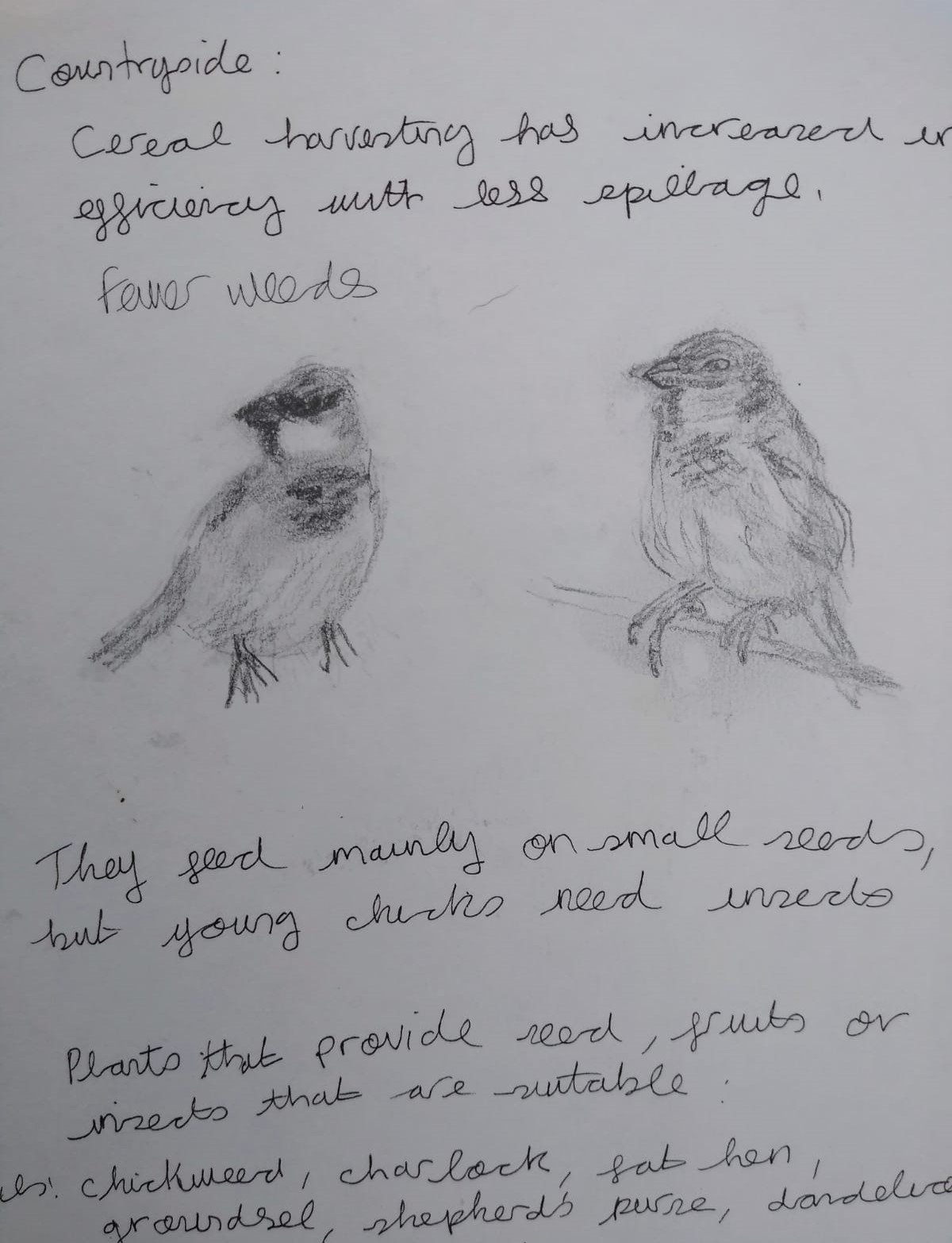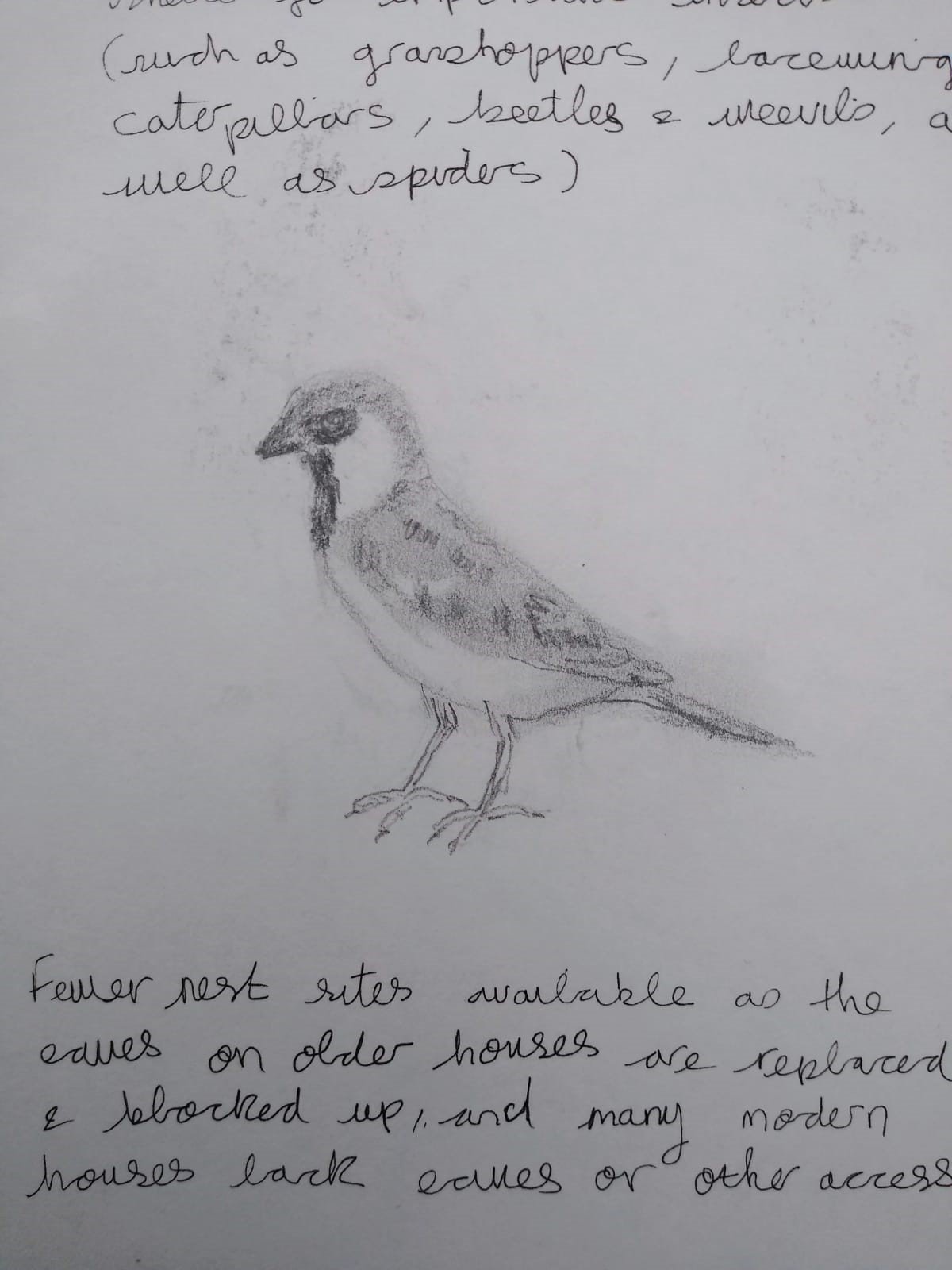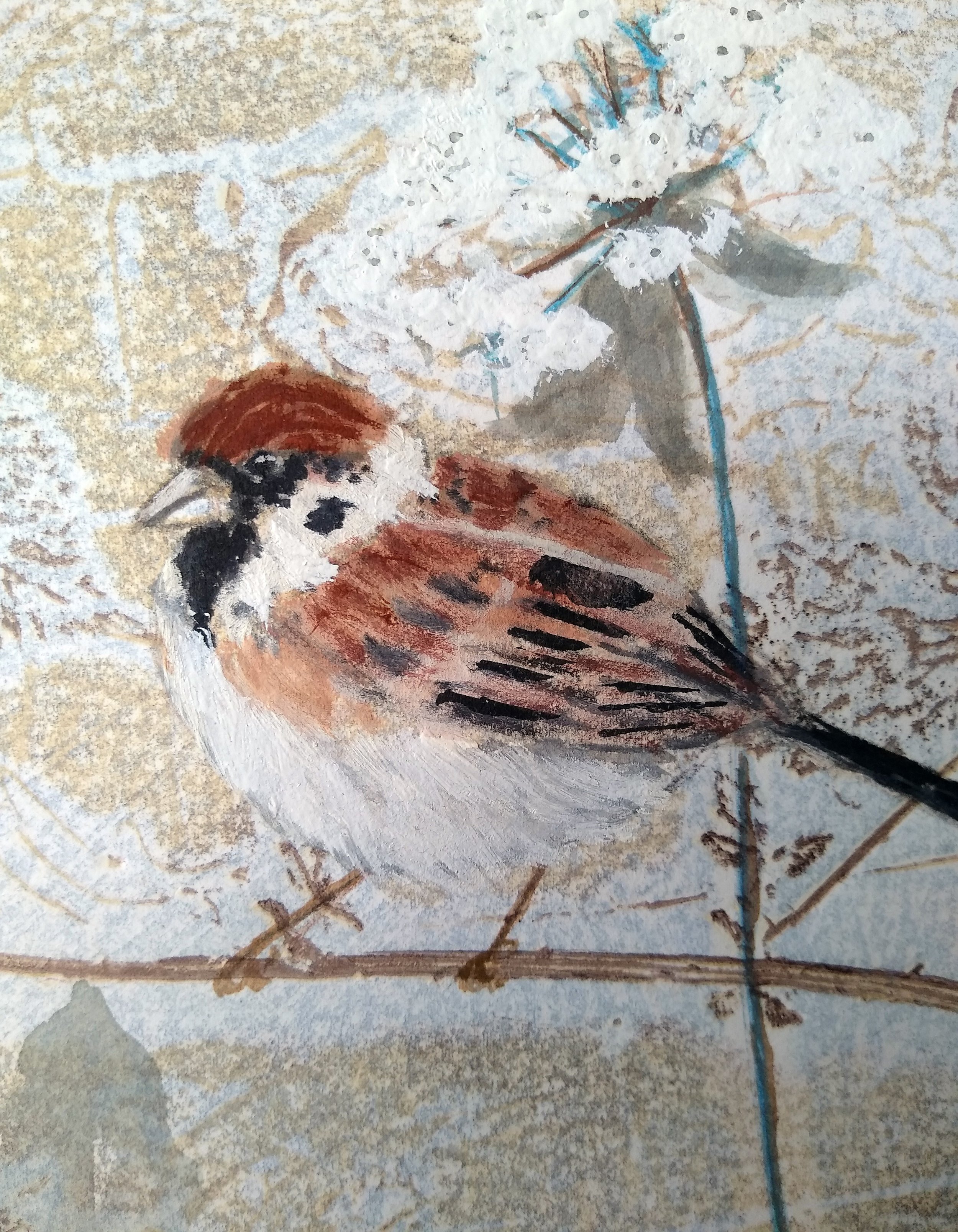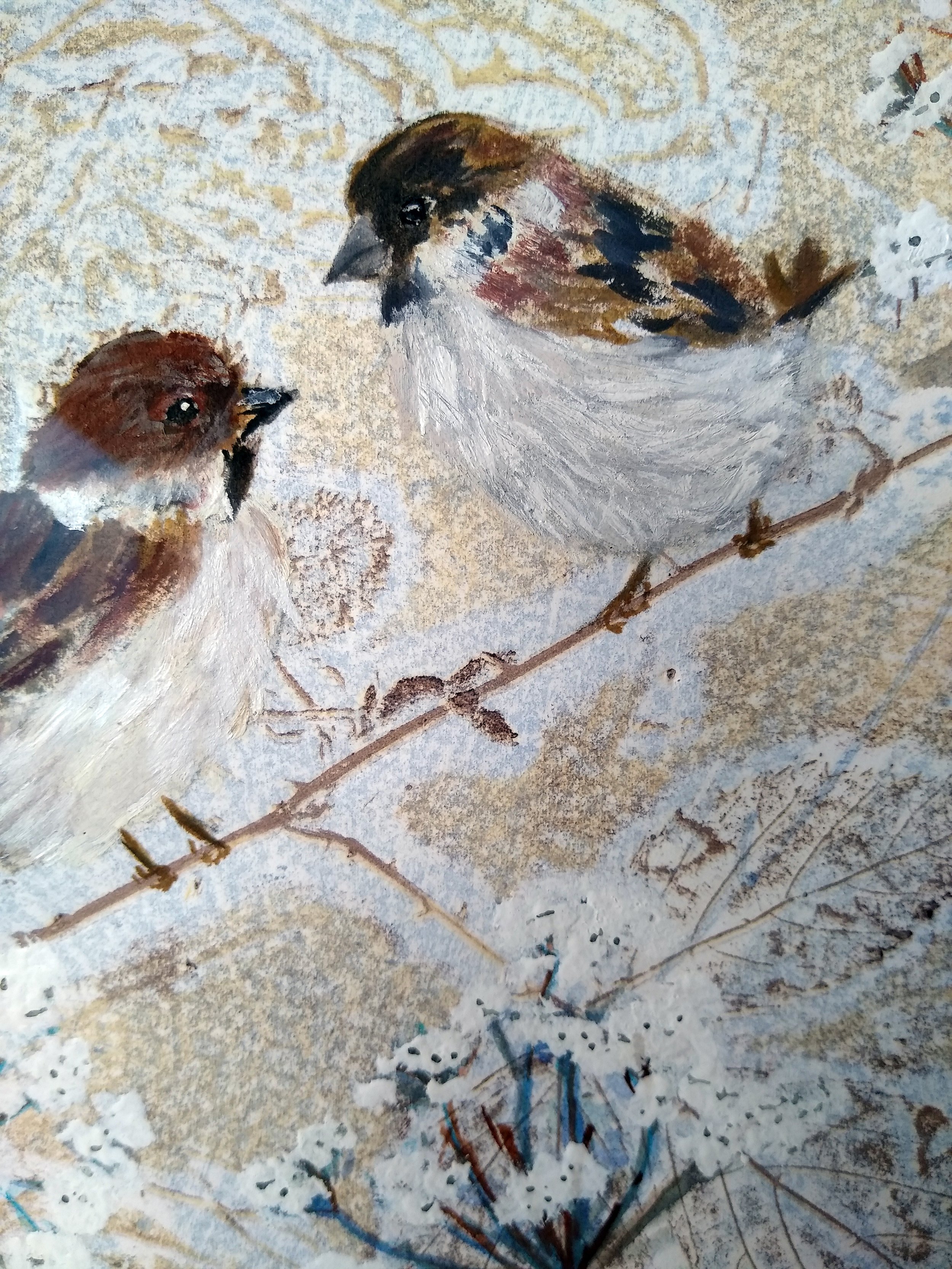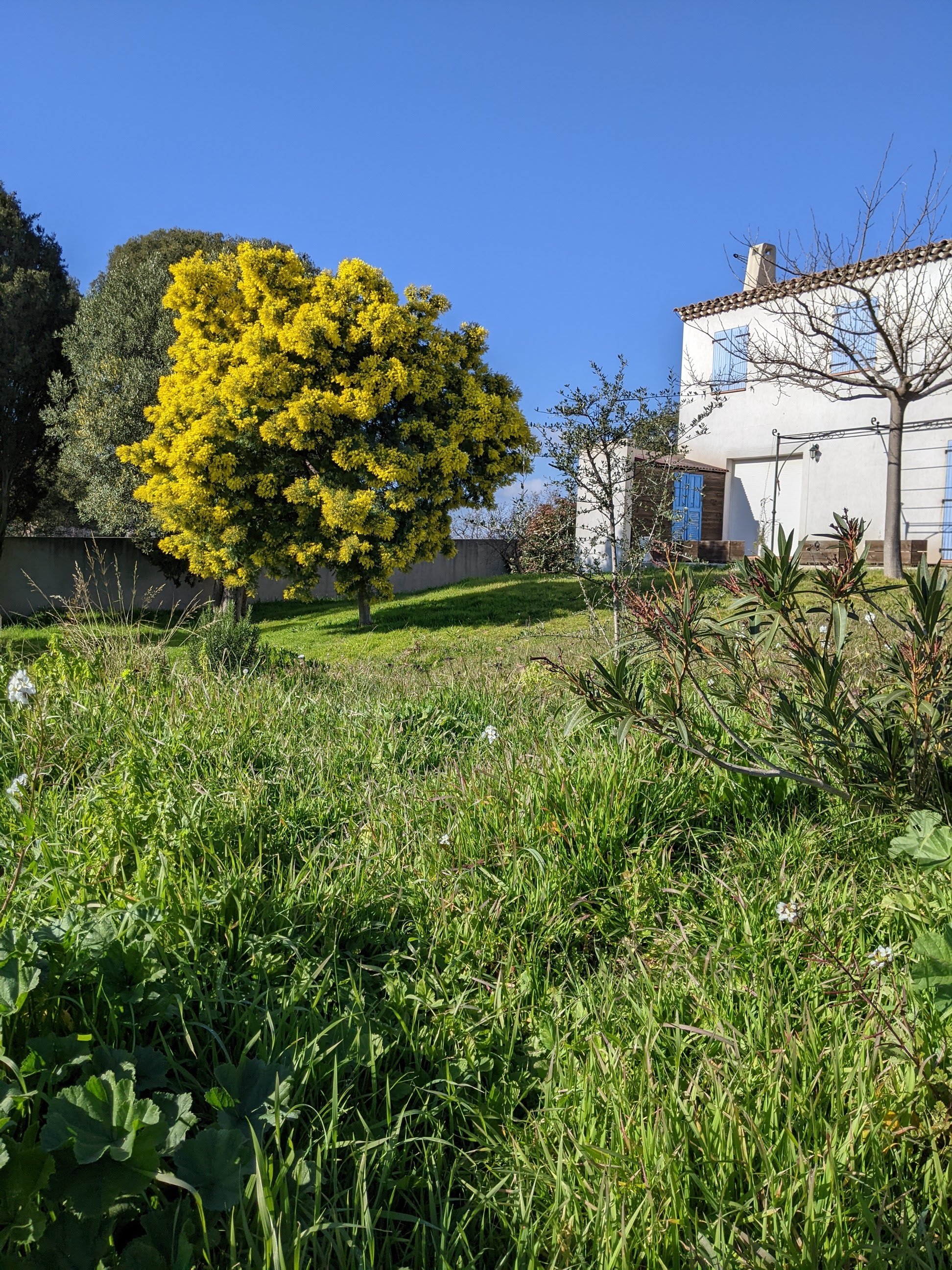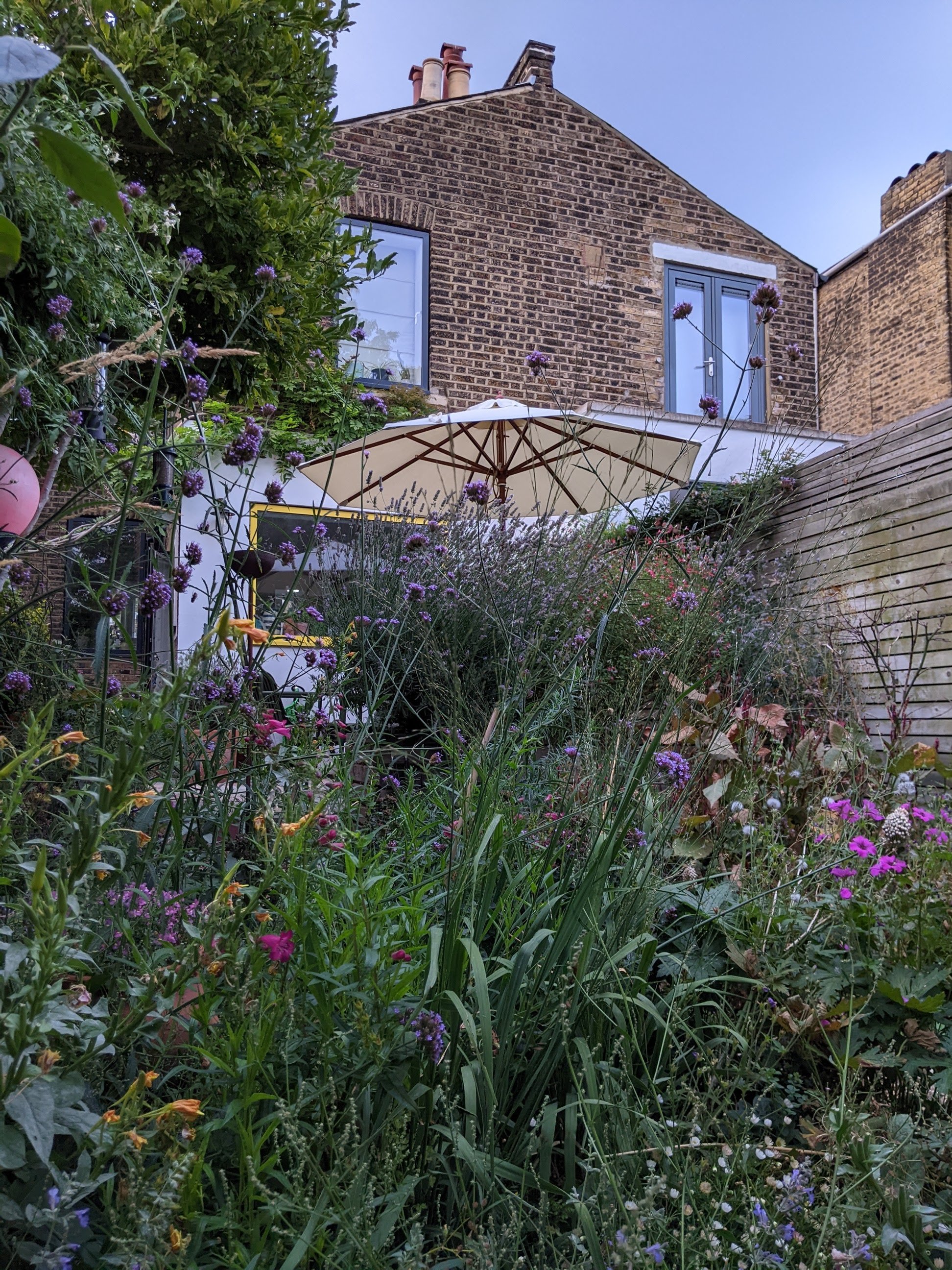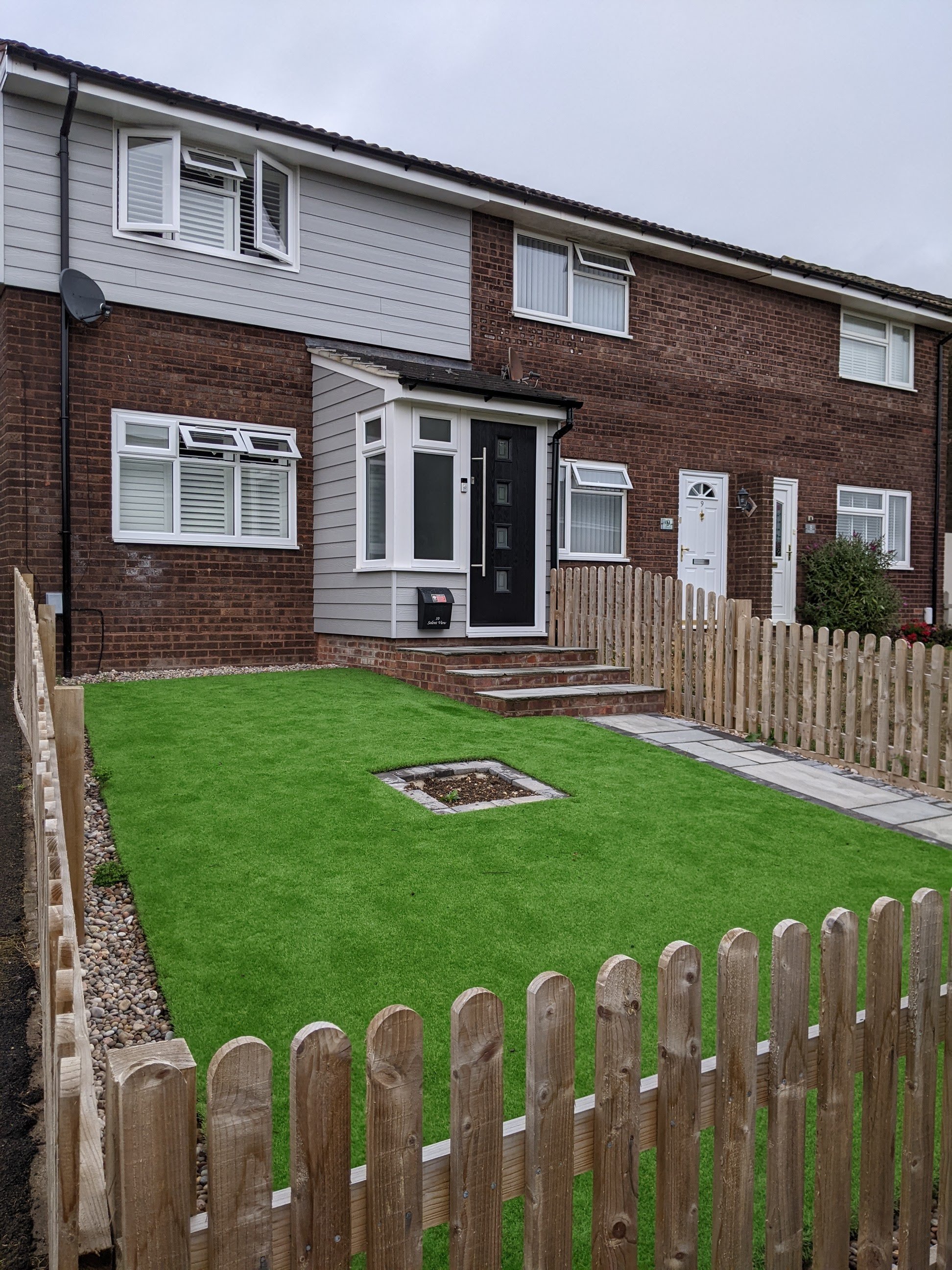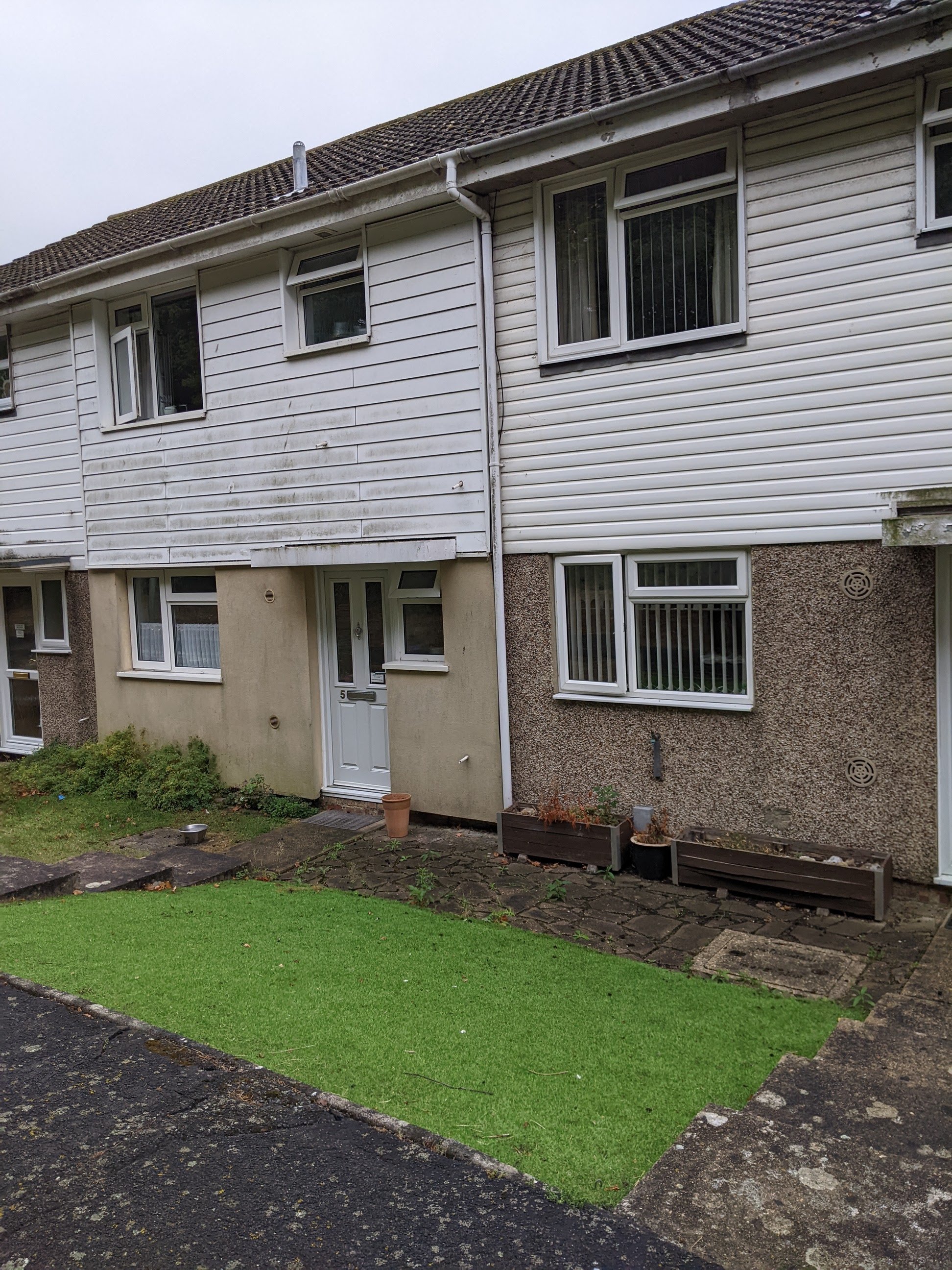The cheeky, chirpy House Sparrow
It’s been a while since I posted anything so here’s a small update for you, and it goes hand-in-hand with a piece of artwork that I made a while ago, called ‘One Day in May’. This mixed media artwork features one of my favourite garden birds, the House Sparrow.
I do very much like House Sparrows! I love their chirpiness, and their cheekiness. They are not afraid to venture right up to the window or perch on the surrounding brick work to look for spiders and grubs. Although not as exciting to spot as more attractively coloured birds such as Goldfinches, Robins and Great Spotted Woodpeckers, I find the muted colour palette of their feathers just as lovely.
In my garden I put out squirrel-proof bird feeders filled with sunflower seeds, but the sparrows are unable to feed from them as they are not the right shape to hang upside down and their beaks are too thick. Instead, I put mealworms on the surface of plant pots which they absolutely love.
It is important help the birds in this way because research shows that House Sparrows, along with many other wild bird species, have been in decline across much of Europe since the late 1970s. The humble sparrow, can you believe, is now listed as a species of conservation concern!
House Sparrows like resting and hiding in old, dense ivy and other bushes such as honeysuckle, wild roses, hawthorn and fruit trees, many of which are disappearing as gardens are ‘made-over’ with artificial grass and faux plastic plants. There was a petition against artificial grass in 2021, stressing that:
It is environmentally irresponsible to allow garden space occupied by grass & other plant life (which processes CO2 & supports wildlife) to be replaced by plastic which does not biodegrade.
Two real gardens on the left vs two fake gardens, which do you prefer?
However the sale of artificial grass continues. The Government obviously think it’s ok for nature to be smothered in plastic and do not understand the importance of gardens in the battle against climate change and habitat loss. Even the Chelsea Flower show have deemed fake grass to be a no no, I wish our Government weren’t so out of touch.
So in this silly situation, the best thing we can all do is make sure we allow our gardens to be a bit wild. Never use chemicals on our gardens and leave an area of grass and weeds to grow. This will encourage nature to thrive and supply food and shelter for our birds and important insects such as grasshoppers, lacewings, caterpillars, beetles and weevils, as well as spiders - all foods that House Sparrows enjoy eating.
Ok, well that’s it for this blogpost, I hope that you enjoyed the reading and the new House Sparrow artwork, feel free to leave me a comment. My husband and I have just taken over an allotment for a test run so my next blog entry will be around our new venture. I can’t wait to show you how things progress down at the plot and hopefully you’ll see some new allotment inspired artwork from me.
Jill x
One Day in May - A mixed media monoprint of House Sparrows by Jill Poole
